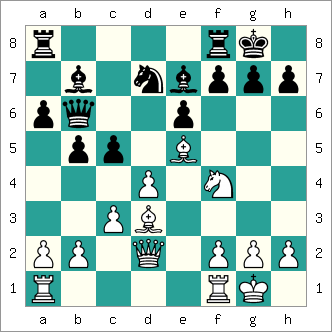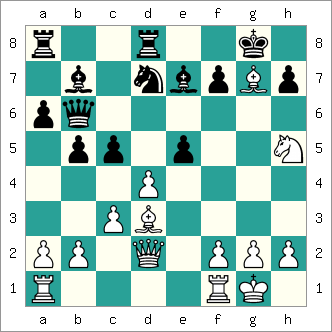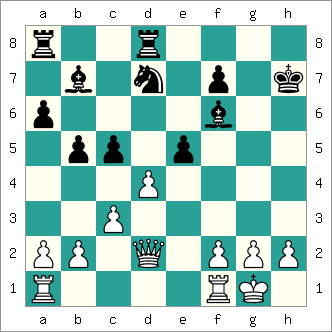In my foolish youth I generated a personal pgp key with no expiration date, uploaded it to a keyserver and promptly forgot about it. I’ve lost the key, which means I can’t prove I don’t want to use it anymore (“revoke” it). It will therefore live on forever on keyservers around the world. But I’ve generated a new key and hereby declare the old one abandoned.
Don’t let this happen to you, kids! Generate a revocation certificate ahead of time and store it somewhere safe but difficult to lose. Some say you should print it out on paper.
By the way, anything encrypted with the old key will be unreadable by anyone, so if you want to get something off your chest, here’s your chance.
keyID 87D944A6 is dead, long live keyID C713D021! If you want to communicate with me in privacy, look me up on any keyserver and choose the newer key. Or just encrypt with the following:
-----BEGIN PGP PUBLIC KEY BLOCK-----
Version: GnuPG v1.4.9 (GNU/Linux)
mQGiBEqC6qgRBACNgNVCzhv3hY+eIv+JqY25UJ4Ji9LBakwVBGaP7kbzkKFRVTKn
x8axV+dS4vRNFm35GcYKZ4+rq8PYohUWpyyCR5/7vamNpHcOnHsrQn+bh9n+agEh
J5ojvjBjK6xQtJXtMRaERVLsslBHVqAo23E14ORPqLEa+q/G6CN1b8QXGwCguAqX
Emi3pYkjCHns5uVk6ZAhU+ED/i2hu3DBiunGAPI6eiLox8XqZs1k1Tit3wR1a+Rv
A6eR/Fn2pOGhoqYrHgAs77TYd8i4DsrpxfylVbub4mRw5tqU3F3B2pDlzzOkCyJ2
LgjWBU45bpi2iGTP5OK92Ynu8bRgaVnZqIHWDsYLK17oThLY0xQ6zfK+V1IG17LV
HFCMA/95V60wmAA9za9zJUS63uWV4e+M8vL0P0IjA0srgZXytCaumTyL3ioSpc3Z
mC2jgbIhFAvYoctJkae/P7vw1YYSUqVtVasNEQ000VVwvoc0fI+PayaEeB06JU8X
afLsPFd91J/DKxGNdQPvAymoxpCo2gRPDNBj4ggacLt7YG0EI7QwU2FtIEhhcmR3
aWNrIChvZiBIZWxzaW5raSkgPHNhbS5oYXJkd2lja0Bpa2kuZmk+iGAEExECACAF
AkqC6qgCGwMGCwkIBwMCBBUCCAMEFgIDAQIeAQIXgAAKCRCwR9LwxxPQIeGfAJwP
uJpASRN2G7CRyAqLeaSuqmrX7wCglKAPhQAlkUNqy5azUhqW0QVZ8wm5Ag0ESoLq
qBAIANYV2ONUmRgyhhMfTfCwdpxhiE4mfW3sLNpVz/RN6uG+TqSLnNQpxd+NfmTx
rlKDsiBB5Aza1X8HkdXvAHx4ekMp3b+ZmnREgsvF+aFRGN+LPXOp5t64bYKhMDkd
2IQC9XjbqZhgV2xxElTKgdnwo7H3b5DCM/Cbjpq43ZtcAlbOhCE35EC6mJsmHio7
r/biBR0DryogAfcFIbZAFgtmMLnI+ndvH8kbFolyATK2Bsj9rJ/+FBqjYu/GJZJZ
TqXNv/JjDvUJx1h4ivKPsW9cBFUvJtPPR6iYPf1h+9JltOO2oyJMzAHDIXUDtqCM
nH7D+kVHCEVhtTKnxXi7vSb2HMMAAwYH/jYa7zEGb2VE0aI12iRQW1/NWlKhnAGc
GS9qRHtK83uIitDEmcWTbPVdHenHWL2wrp78zjQuFl6AWkDzbk/VbDCfc6A29ndm
2z8fMt9X1hQk4h8aqhkxnsuCVAD2P4loa92q75x6mOhkhKQp76YW07TrSw8wPD52
ogRkZ3nxavkGXJQA4wNQZFS0xLEUmRvZSuIMh+xXJChFPpqDtiX0HVVv4lmcZHQq
QDPVvnXerKuNtU4rFPLoKEzpKUQdtRce9SXS/HrykLxBfA3Z9SFQx/NsS957gv5w
cHslhOtbscK6/6taj++p2f0MtK+4KLHVOJHI/ycDdGk+eQkbLwkNEWiISQQYEQIA
CQUCSoLqqAIbDAAKCRCwR9LwxxPQIQu2AJ9C0+CjB08l5E1Fm6lasKXtMNQdqwCg
ps4fdwJLuMUlgWPCjE7XVDd+28U=
=207I
-----END PGP PUBLIC KEY BLOCK-----







